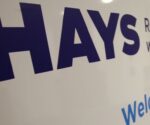National Insurance Budget change branded ‘fake cut’ for one simple reason | Personal Finance | Finance
The cut to the rate of National Insurance is a “fake cut” and actually amounts to a reduced tax increase, an expert has claimed.
Chancellor Jeremy Hunt announced his Budget in the Commons yesterday and it included a cut to the rate of National Insurance, falling from 10 to 8 percent.
Mr Hunt said: “From April 6, employee National Insurance will be cut by another 2p, from 10 percent to 8 percent, and self-employed national insurance will be cut from 8 percent to 6 percent.”
This is the second cut to National Insurance in 2024 as the Government had previously cut the rate from 12 percent to 10 percent in January, reportedly providing aid for more than 27 million workers.
Speaking to GBNews, Sam Fowles, a barrister and director of the International Centre for Dispute Resolution, explained that while this cut will save the average person £900 a year, it will not offset the average tax increase of £3,500 per year.
Mr Fowles said: “If you look at the numbers over the course of this Parliament, on average people are paying £3,500 a year more in tax whereas the best case scenario with this National Insurance cut is a £900 a year saving.
“So whichever way you cut it over the course of this Parliament we are paying much more in tax.
“This tax cut is not really a cut, it’s just slightly less of a tax raise. It’s a raise disguised as a cut.”
Sarah Coles, head of personal finance at Hargreaves Lansdown, said the National Insurance cut isn’t “so much a rabbit pulled out of a hat as a slightly tatty-looking ferret dragged from a box, labelled ‘rabbit’.
She said: “An income tax cut has been discussed for well over a year. A National Insurance cut [is] far better than nothing, but [it’s] a scaled-down, less attractive option.”
The National Insurance (NI) rate an individual pays depends on specific bands. Deductions on a person’s payslip are determined by their NI category letter and the portion of their earnings within each band.
The starter rate for National Insurance applies to earnings between £12,570 and £50,270.











